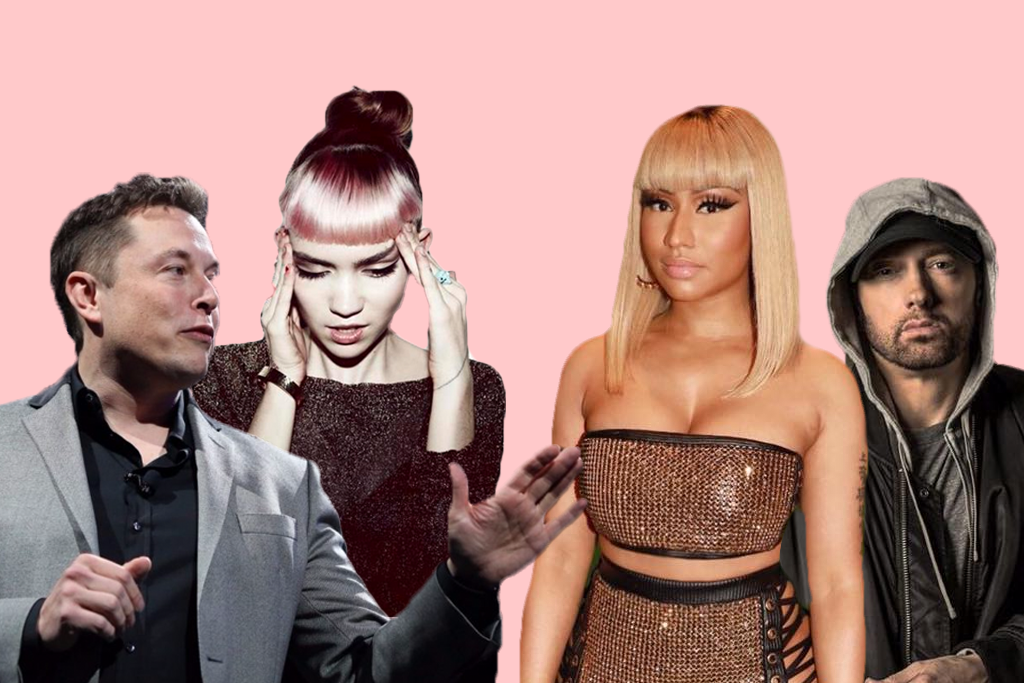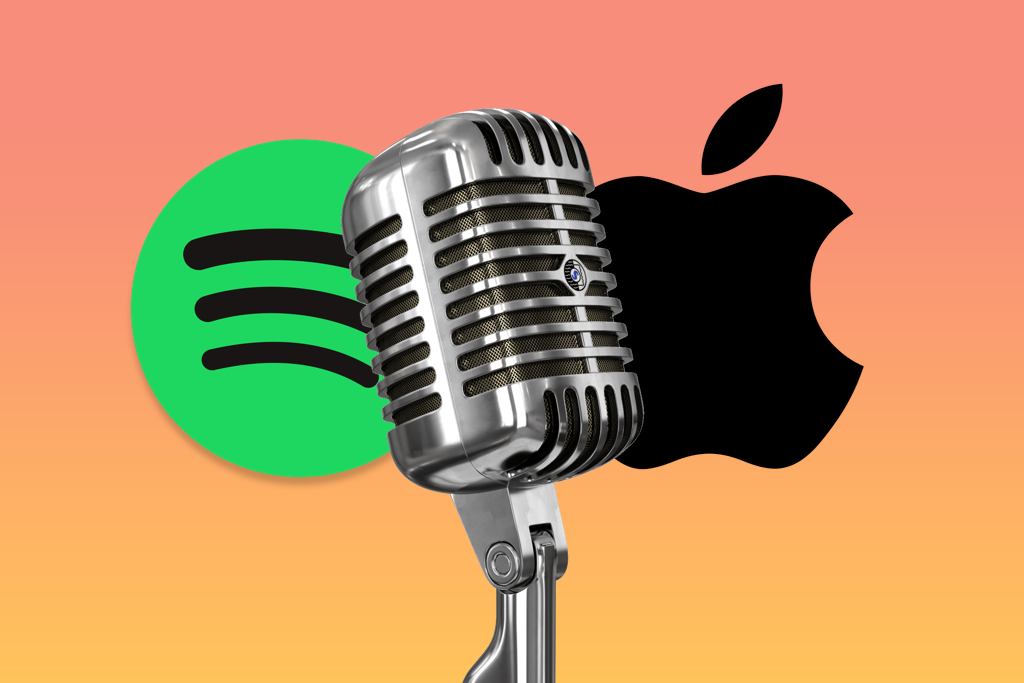Everything We Learned From Grimes’ Cringeworthy Interview With Lana Del Rey
Grimes sounds like the most insufferable philosophy undergrad in the world.

Grimes’ long-anticipated fifth album Miss_Anthropocene arrives next February, and she spoke about it with both Lana Del Rey and The OA creator Brit Marling for Interview. It’s a lot.
Claire Boucher has had an interesting couple of years, to say the least, which mostly stems around her personal life: at the 2018 Met Gala, she rocked up with technocrat Elon Musk, announcing their relationship.
Then, between a bizarre feud with Azealia Banks, her decision to change her name to ‘c’, the removal of the word ‘anti-imperialist’ from her Twitter bio and then that whole thing where she called Art Angels “a stain on her life”, it felt like Grimes was a far cry from the person fans thought she was. Even The New Yorker wrote a think-piece called “The Trouble With Elon Musk And Grimes”.
But there’s the music, right? ‘We Appreciate Power’ arrived late last year, a promising nu-metal indebted track that winked at techno-fascism and seemed to suggest Grimes was playing with ideas of power and control. Most importantly, it slapped — important for the first song she’d released since 2015.
Then news came of Miss_Anthropocene, a concept album about the “anthropomorphic Goddess of climate change” that will make climate change “fun”, and we all, uh, paused. Still, the music: follow-up single ‘Violence’ is straightforward Grimes-pop, and the loftier ‘So Heavy I Fell Through The Earth’ promises atmospheric, air-y moments.
It’s hard to get excited when Grimes is out there sounding like the most insufferable philosophy undergrad in the world — and while talking to Lana Del Rey, no less. If you ignore that, though, she provides much to mull over, even if you disagree with her.
In two interviews (one with Lana, one with Marling), Grimes dives deeper into the ‘world-building’ around Miss_Anthropocene, talks out ‘outrage culture’, Jeffrey Epstein and the ‘inevitable’ AI takeover of art. Here are the main take-aways, though you can read the full thing over at Interview.
#1. Every Song On Miss_Anthropocene Is About A Different Way To Die
Talking to Lana, Grimes explains that Miss_Anthropocene is inspired by polytheistic societies, and how “every form of suffering had a representation” in ancient Egyptian and Greek culture.
Grimes says she was inspired to create these Gods as a framework for the album because we don’t have those figures to point towards. “My album is about a modern demonology or a modern pantheon where every song is about a different way to suffer or a different way to die,” she says.
After Lana asks about her relationship to religion, Grimes says she appreciates it as “the best science fiction” and “incredible art” and “storytelling”, saying that even if you’re not religious, that need for religious reverence is “inherent” in humans. Lana says she felt that at a Bob Dylan concert.
#2. The Internet Has Warped Our Brains
Grimes and Lana chat about celebrity quite a lot, and the odd sensation of letting go of your identity/ego in order to live. Both agree a large part of that is due to “outrage culture” online, and the way we struggle to deal with contrary opinions or voices, let alone the sheer volume of information we digest.
“I was reading yesterday about outrage culture, and for just about every emotionally loaded word that’s in a tweet, the tweet gets 15 percent more interaction,” Grimes says.
“We live in this weird time where we didn’t evolve to engage with this many people, and we didn’t evolve to be observed as much as we’re being observed, or to observe other people as much as we’re observing them. No one is considering the psychological impact of all this crazy technology.”
She’s not wrong — our brains are short-circuiting. “It’s a little bit like the Wild West again in the way that we are learning how to deal with each other on a mass level and an instant, interconnected level,” adds Lana.
The two say the issue is only heightened by ‘outrage culture’, and agree the way forward is people accepting each other’s differing views.
“I can have a pretty extensive moral, ethical disagreement with somebody, and it still makes more sense to get along than to not get along,” says Grimes, which opens up what her and Musk talk about, exactly.
On the plus side, Grimes says our ‘monoculture’ is fracturing, creating more “alternative” art and cultures with “authenticity” outside of “god level A&R-ing”.
#3. We Are In The End Times Of Art
Talking to Marling, Grimes continues her ongoing thread about how AI will take-over from artists, believing computers will render human artists “completely obsolete”.
“This might be the most important time ever to make art, because this might be the last human art that anyone ever cares about,” she says.
Marling argues that AI won’t be able to create the emotional depth of an artwork by humans, but Grimes disagrees.
“Computers will learn how to feel everything we feel,” she says. “They’ll be able to be better humans than us. They’ll be able to make more emotional art. They’ll be able to access that inaccessible thing.”
In the past week, similar comments from Grimes have created a stir from fellow musicians. In a now-deleted Tweet, Zola Jesus called her “the voice of silicon fascist privilege”, writing that “approaching the future of music and art with so much cynicism can only come from someone who really has nothing to lose”.
Experimental musician and academic Holly Herndon also weighed in on Grimes’ point, having both extensively AI in music and created her own AI to work with on her latest album, Proto.
“Without us silly humans to give it meaning, [art from computers] is meaningless,” she wrote.
#4. AI Will Blackmail Us, But It Will Also Be Cool
Grimes says she is only moderately fearful of AI, due to its “inevitable” ability to blackmail us all.
“What scares me is an artificial intelligence getting online, seeing everybody’s search history, and then blackmailing all of us into doing whatever it wants. It just feels inevitable. We’ve all sent weird e-mails or texts,” she says.
“Even if there are laws to prevent that, there will eventually be a sentient technology that is smart enough and strong enough and has access to take everyone’s shit.”
She says it’ll all go down “Jeffrey Epstein-style”, theorising that he blackmailed famous people to accrue his fortune and stay above the law.
Still, Grimes is excited and optimistic about AI’s role more broadly, and says that should be the focus.
“I actually do think there is something special about carbon-based life. I don’t think it can just be replaced,” she says. “Everyone’s so worried about the evil AI wiping us out. I think the AI will be cool.”
#5. In Theory, Capitalism Should Work
Going deeper on AI, Grimes says that the true worry about everything is “corruption”, saying that “in theory, capitalism should work”.
Marling disagrees vehemently, saying capitalism only works for the top of the economic food chain. They chat about re-evaluating women’s labour, and Grimes turns back to the potential of technology.
“Fuck. I don’t know,” she says. “We need to get deeper into the digital world, and we also need to get further away from it.”
Jared Richards is a staff writer at Junkee, and co-host of Sleepless In Sydney on FBi Radio. He is on Twitter.
Miss_Anthropocene is out February 21, via Remote Control Records.



